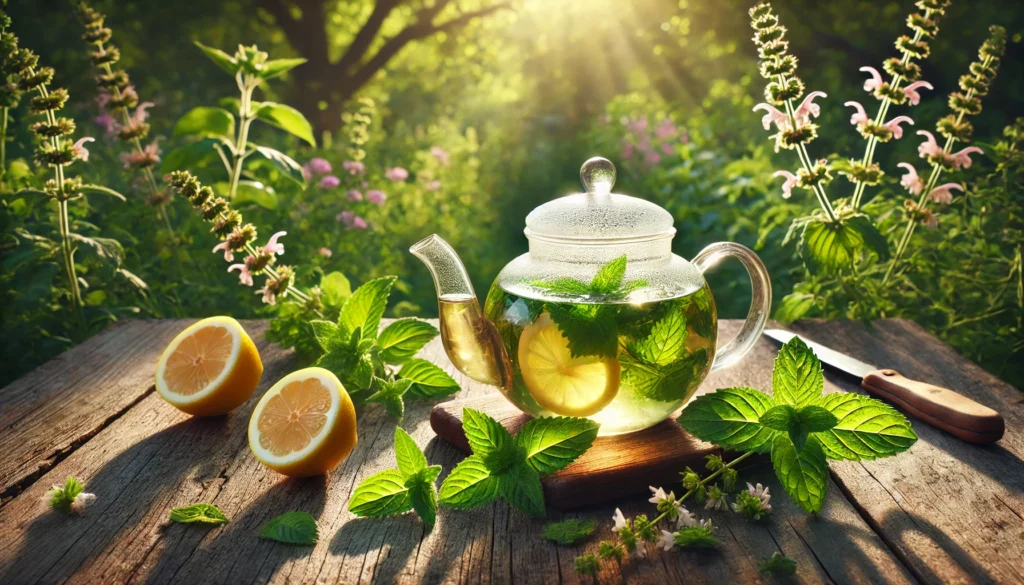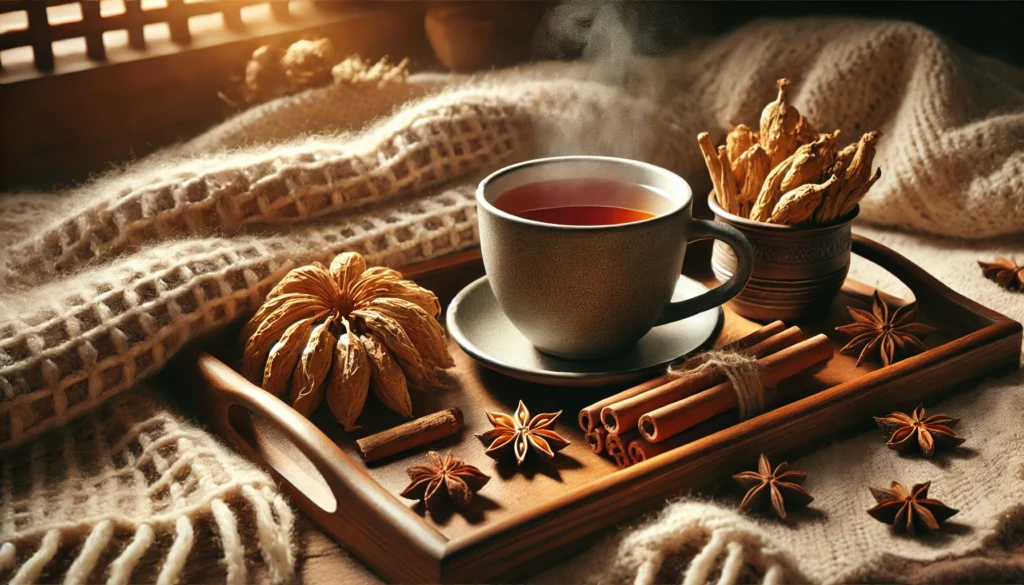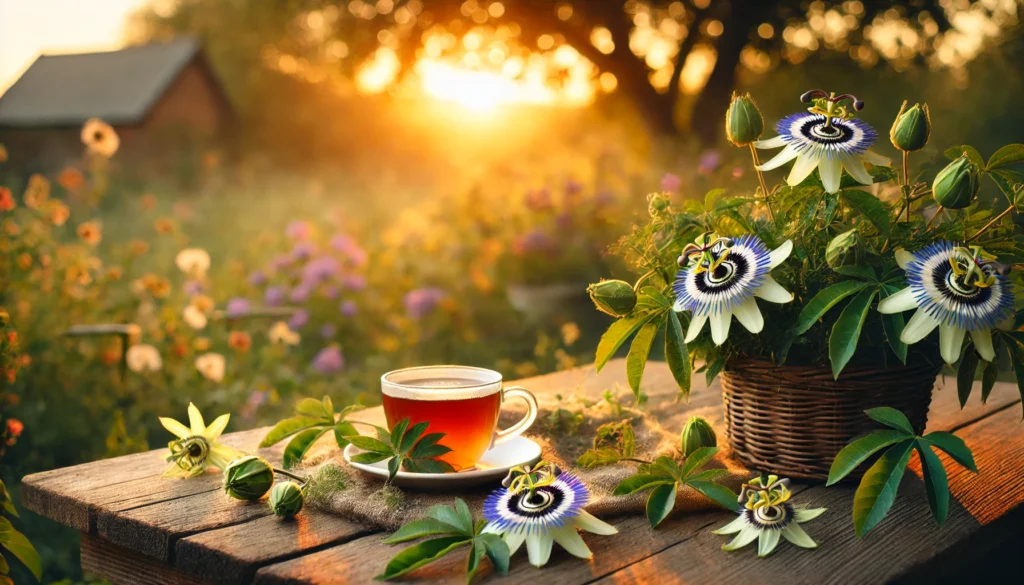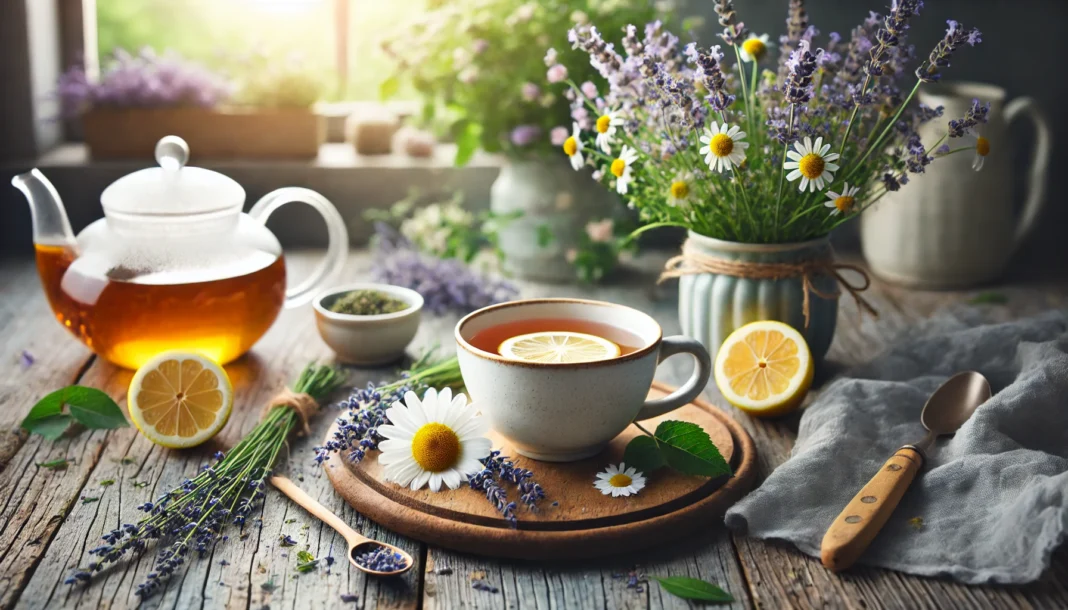In our increasingly hectic world, the pursuit of calm has become more than a luxury—it’s a necessity. Anxiety disorders affect millions of people globally, with adults frequently seeking both clinical and natural avenues for relief. Among the rising stars in the wellness world are beverages formulated from plants, herbs, and adaptogens that have been used in traditional medicine for centuries. These natural drinks to help with anxiety are gaining popularity not only for their soothing properties but also for the sense of routine and comfort they provide in moments of emotional unrest. The central question is whether these beverages can truly support mental wellness or if their effects are primarily psychological. This article explores that question in depth, weaving scientific insight with practical guidance.
You may also like: Best Herbal Alternatives to Anxiolytics: Natural Remedies for Anxiety Relief
Understanding Anxiety and the Modern Mind
To fully appreciate the role of herbal beverages in managing anxiety, it’s important to first understand the nature of anxiety itself. Anxiety is a multifaceted mental health condition that encompasses feelings of worry, nervousness, and fear. While occasional anxiety is a normal part of life, chronic anxiety can interfere with daily functioning, relationships, and overall quality of life. Generalized Anxiety Disorder (GAD), social anxiety, and panic disorder are just a few manifestations that millions of adults contend with.
Anxiety has both psychological and physiological roots. On a physiological level, it often involves dysregulation of neurotransmitters such as serotonin, dopamine, and gamma-aminobutyric acid (GABA). These chemical messengers regulate mood, energy levels, and the stress response. Modern lifestyles characterized by poor sleep, high stress, and inadequate nutrition further exacerbate this imbalance. While therapy and medication play critical roles in treatment, many individuals seek holistic alternatives or complementary approaches, especially when side effects or long-term medication use become concerns.

The Role of Holistic Approaches in Mental Wellness
The increasing popularity of holistic supplements and herbal remedies for anxiety reflects a broader societal shift toward integrative mental health. Rather than viewing physical and mental health as separate domains, the holistic perspective recognizes that bodily health, emotional well-being, and lifestyle choices are intricately connected. Natural drinks to help with anxiety fit neatly into this paradigm because they provide both physiological nourishment and a psychological sense of care.
Holistic methods emphasize prevention and self-care. Instead of waiting for symptoms to escalate, individuals are encouraged to build daily habits that support resilience and nervous system regulation. Herbal teas, adaptogenic elixirs, and calming infusions represent more than a trend; they are part of a lifestyle that promotes intentional wellness. Moreover, their accessibility and low-risk profile make them attractive options for those exploring alternatives to pharmaceuticals.
Why Drinks? The Science Behind Sipping for Calm
Beverages have a unique role in both cultural rituals and personal routines. The act of drinking something warm, aromatic, or flavorful can engage multiple senses and signal the body to relax. Scientifically, this process can be deeply calming. Warm liquids activate the parasympathetic nervous system, also known as the “rest and digest” system, which helps counteract the fight-or-flight stress response.
Many of the best drinks for anxiety contain compounds that directly influence neurochemical pathways involved in mood regulation. Ingredients like L-theanine, found in green tea, or apigenin, found in chamomile, interact with GABA receptors, promoting a sense of calm without sedation. These plant-based compounds have been studied for their anxiolytic effects, offering natural support for mental wellness. Importantly, they do so without the addictive potential or side effects often associated with benzodiazepines and other medications.
Chamomile Tea: Tradition Meets Science
Chamomile is one of the most well-researched herbs when it comes to anxiety relief. Used for centuries as a mild sedative and digestive aid, chamomile tea continues to be one of the most popular natural drinks to help with anxiety today. Its primary active compound, apigenin, binds to GABA receptors in the brain, mimicking the action of anti-anxiety medications but in a gentler form.
Several clinical studies support chamomile’s potential benefits. For example, a randomized, double-blind study published in the journal Phytomedicine found that individuals with Generalized Anxiety Disorder experienced a significant reduction in symptoms after taking chamomile extract for eight weeks. While the study focused on extract form, the tea made from dried chamomile flowers provides a milder yet still beneficial effect. Many people find that the simple act of sipping chamomile tea at night promotes better sleep and a calmer mind.
Lavender Infusions: Aromatherapy in a Cup
Lavender is most often associated with aromatherapy, but it also has internal applications that make it one of the best drinks for anxiety. Consuming lavender-infused tea or water can provide a range of calming benefits. Lavender contains linalool and linalyl acetate, compounds shown to have sedative and anxiolytic properties. When consumed, these compounds can help decrease cortisol levels and support mood stability.
Clinical research backs these effects. A study published in Physiology & Behavior demonstrated that participants who consumed lavender tea experienced lower levels of stress and improved sleep quality. For those who prefer a floral and slightly sweet profile, lavender infusions can be a delightful and effective addition to a daily wellness routine. Integrating this beverage into moments of pause throughout the day can amplify its therapeutic potential.
Green Tea and L-Theanine: A Balancing Act
While green tea contains caffeine, it also holds one of the most powerful natural compounds for anxiety relief: L-theanine. This amino acid has been shown to promote alpha brain wave activity, which is associated with a state of relaxed alertness. In this way, green tea does something unique—it energizes without agitating.
L-theanine increases the production of GABA, serotonin, and dopamine, which are all essential neurotransmitters for emotional regulation. This makes green tea one of the best drinks for anxiety, particularly for individuals who need to stay alert and focused without succumbing to stress. A study in the journal Nutritional Neuroscience reported that individuals who consumed L-theanine experienced reduced heart rate and better subjective feelings of calm. Choosing high-quality, minimally processed green tea maximizes the benefits while minimizing caffeine-related side effects.

Kava Root: Nature’s Sedative with Caution
Kava is a traditional drink from the South Pacific islands known for its powerful calming effects. Made from the root of the Piper methysticum plant, kava has been used ceremonially and socially to promote relaxation and community bonding. Its active ingredients, kavalactones, influence GABA receptors and modulate stress pathways in the brain.
Kava’s effectiveness is supported by research. A meta-analysis in Journal of Clinical Psychopharmacology concluded that kava extract was significantly more effective than placebo in treating anxiety. However, kava should be used with caution. High doses or prolonged use have been linked to liver toxicity, especially when not prepared using traditional methods. Those interested in kava as a natural drink to help with anxiety should consult a healthcare provider and choose products from reputable sources that follow safe extraction processes.
Frequently Asked Questions (FAQ) — Natural Drinks and Anxiety Relief
What makes natural drinks a valuable addition to anxiety management routines? Natural drinks offer a multi-sensory experience that can reinforce relaxation through taste, temperature, aroma, and psychological association. While conventional treatments like therapy and medication remain essential for moderate to severe anxiety, adding natural drinks to help with anxiety can enhance daily coping strategies. These beverages often contain phytochemicals and bioactive compounds that subtly influence the nervous system, supporting neurotransmitter balance and stress hormone regulation. Additionally, the act of preparing and drinking something soothing can become a grounding ritual, reinforcing mindfulness and routine. This combination of physiological and behavioral reinforcement can make herbal drinks an effective component of a comprehensive wellness plan.
Are there seasonal or climate-based considerations when choosing the best drink for anxiety? Yes, the effectiveness and comfort of certain anxiety-relieving beverages may vary depending on seasonal or environmental conditions. For example, in colder months, warm beverages like chamomile, tulsi, or ginger-laced teas may offer both emotional warmth and physical comfort, making them ideal natural drinks to help with anxiety. Conversely, during warmer seasons, iced herbal infusions with ingredients like lemon balm or passionflower can provide a cooling effect while still promoting calm. The body’s physiological response to heat and cold can influence anxiety symptoms, making seasonally appropriate drinks an important consideration. Adapting your beverage choices to the climate may help optimize their calming benefits.
Can natural drinks support long-term emotional resilience rather than just temporary relief? Absolutely. While many assume that natural drinks to help with anxiety only offer short-term relief, consistent use of certain adaptogens and calming herbs may contribute to long-term nervous system regulation. Ingredients like ashwagandha and reishi mushroom, often included in wellness beverages, may help modulate the hypothalamic-pituitary-adrenal (HPA) axis over time, reducing baseline stress levels. Integrating these beverages into a broader lifestyle that includes exercise, sleep hygiene, and mental health support can amplify their effects. Rather than being a quick fix, these drinks can support the foundation of emotional resilience and balance.
How do cultural traditions influence the types of natural drinks used for anxiety relief? Cultural practices significantly shape the perception and selection of the best drink for anxiety. For instance, in Japan, matcha ceremonies are deeply tied to mindfulness and tranquility, with L-theanine in green tea enhancing this experience. In India, golden milk made with turmeric, cardamom, and warm milk is often consumed as a bedtime tonic for both inflammation and stress relief. Indigenous communities in the South Pacific use kava ceremonially to foster calm and social connection. Recognizing these cultural roots can deepen appreciation for the emotional and communal power of herbal drinks. Exploring global traditions may also broaden the range of options available for modern anxiety care.
Can people with caffeine sensitivity still find effective natural drinks to help with anxiety? Yes, and in fact, avoiding caffeine is often crucial for individuals managing anxiety, as it can exacerbate symptoms like jitteriness, racing thoughts, and sleep disturbances. Fortunately, many of the best drinks for anxiety are naturally caffeine-free. Herbal teas made from chamomile, valerian root, lemon balm, and passionflower are ideal for those who are caffeine-sensitive. Even popular ingredients like cacao, when processed into low-stimulant forms such as ceremonial cacao, can provide mood-lifting effects without overstimulation. By carefully selecting ingredients, people with caffeine sensitivity can still enjoy a rich array of calming beverage options.
What role does gut health play in the effectiveness of natural drinks for anxiety? Emerging research suggests that gut-brain communication significantly impacts mental health, making gut health a key factor in the effectiveness of natural drinks to help with anxiety. Many calming herbal drinks contain prebiotic fibers or antimicrobial properties that support a healthy gut microbiome. For example, licorice root and fennel are known to ease digestive discomfort while modulating inflammation, both of which can indirectly influence mood. Fermented beverages like kefir or kombucha, when made with adaptogenic herbs, may offer both probiotic and anti-anxiety benefits. Optimizing gut health through natural drinks can be a powerful, though often overlooked, strategy for emotional wellness.
Are there emerging ingredients being researched as the next best drink for anxiety? Yes, scientific interest in plant-based compounds for mental wellness is rapidly expanding. Recent studies are investigating the anxiolytic potential of ingredients like saffron, magnolia bark, and kanna (Sceletium tortuosum). These botanicals are showing promise as additions to the growing repertoire of natural drinks to help with anxiety. Saffron, in particular, has been shown to modulate serotonin levels similarly to pharmaceutical antidepressants but without significant side effects when taken in appropriate doses. As consumer demand for holistic solutions increases, innovation in beverage formulation is likely to bring more of these emerging herbs into mainstream wellness drinks.
How can someone tell if a natural drink is actually helping with their anxiety? Evaluating the effectiveness of a natural drink for anxiety requires both subjective awareness and objective self-monitoring. Individuals may notice improved sleep, reduced restlessness, or a greater sense of calm within hours or days of consistent use. Keeping a mood journal or using wellness-tracking apps can help correlate beverage consumption with mood patterns. It’s also important to observe changes over time rather than expecting immediate, dramatic results. For those seeking the best drink for anxiety, experimenting with different ingredients and blends—while keeping a log of effects—can reveal which formulas are most supportive on a personal level.
What are some innovative ways to incorporate natural drinks into daily routines for anxiety support? Integrating calming beverages into daily rituals can enhance their psychological impact and sustainability. For example, creating a mid-afternoon tea break with a relaxing herbal blend can act as both a physiological reset and a mindful pause during a hectic day. Evening routines might include adaptogen-based moon milk or a warm, calming infusion before bed. For the tech-savvy, smart mugs that maintain the ideal beverage temperature can elevate the sensory experience. Some even combine journaling or breathwork with their tea rituals to amplify the calming effect. When personalized, these habits make natural drinks to help with anxiety a lasting and meaningful part of mental wellness.
Is it safe to combine natural drinks for anxiety with prescription medications? Caution is warranted when combining herbal drinks with prescription medications, especially antidepressants, benzodiazepines, or mood stabilizers. Certain herbs, such as kava and valerian, can potentiate the effects of sedatives or interfere with drug metabolism pathways in the liver. Even seemingly benign ingredients like St. John’s Wort can alter the effectiveness of SSRIs and other medications. It is essential to consult with a licensed healthcare provider or pharmacist before adding any new natural drinks to help with anxiety to your regimen. With proper guidance, it’s often possible to safely integrate these beverages without compromising the efficacy or safety of conventional treatments.

Lemon Balm Elixirs: A Gentle Nervine Tonic
Lemon balm, a member of the mint family, has been used since the Middle Ages to reduce stress and support cognitive function. It is considered a gentle nervine—an herb that calms the nervous system without sedating it. Lemon balm tea or tincture-based drinks offer a mild, refreshing way to reduce tension and enhance mood.
Research has shown that lemon balm may help with both acute and chronic anxiety. In a placebo-controlled trial published in Nutritional Neuroscience, participants who consumed lemon balm extract reported improved mood and increased calmness within one hour. Regular consumption may support long-term stress resilience. Its pleasant citrus-mint flavor makes it a favored option among those seeking a naturally uplifting beverage.
herbal teas for stress relief, adaptogenic drinks for calm, calming herbal remedies, natural stress relief drinks, beverages for mental health, herbal anxiety support, soothing bedtime teas, relaxing herbal infusions, mood-enhancing drinks, tea rituals for anxiety, natural mood stabilizers, herbs that reduce stress, plant-based mental wellness, nervine herbs for relaxation, holistic drinks for anxiety, herbal support for GAD, natural remedies for panic attacks, stress-reducing elixirs, botanical drinks for calm, herbal wellness beverages
Further Reading:
Which Foods and Drinks Help Reduce Anxiety?
How to treat anxiety naturally
10 Natural Ways to Reduce Anxiety
Disclaimer
The information contained in this article is provided for general informational purposes only and is not intended to serve as medical, legal, or professional advice. While NewsHealthWatch strives to present accurate, up-to-date, and reliable content, no warranty or guarantee, expressed or implied, is made regarding the completeness, accuracy, or adequacy of the information provided. Readers are strongly advised to seek the guidance of a qualified healthcare provider or other relevant professionals before acting on any information contained in this article. NewsHealthWatch, its authors, editors, and contributors expressly disclaim any liability for any damages, losses, or consequences arising directly or indirectly from the use, interpretation, or reliance on any information presented herein. The views and opinions expressed in this article are those of the author(s) and do not necessarily reflect the official policies or positions of NewsHealthWatch.

